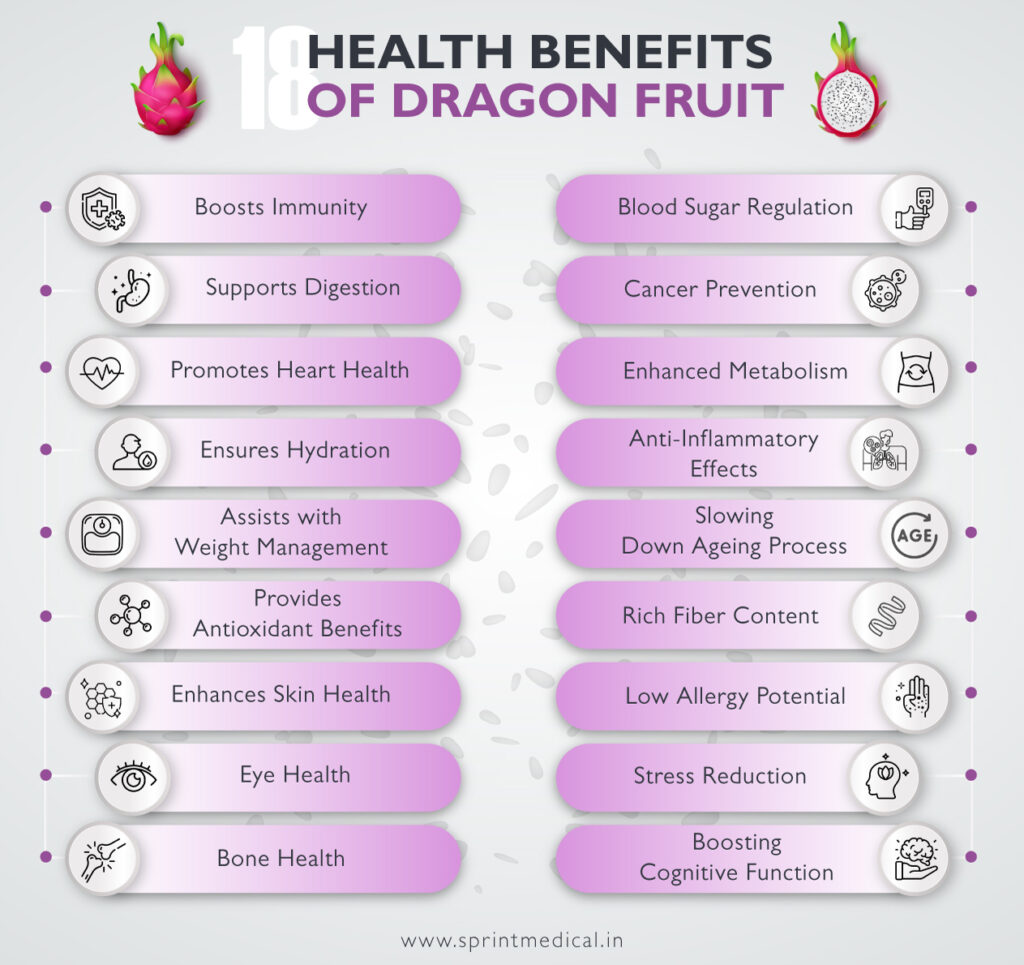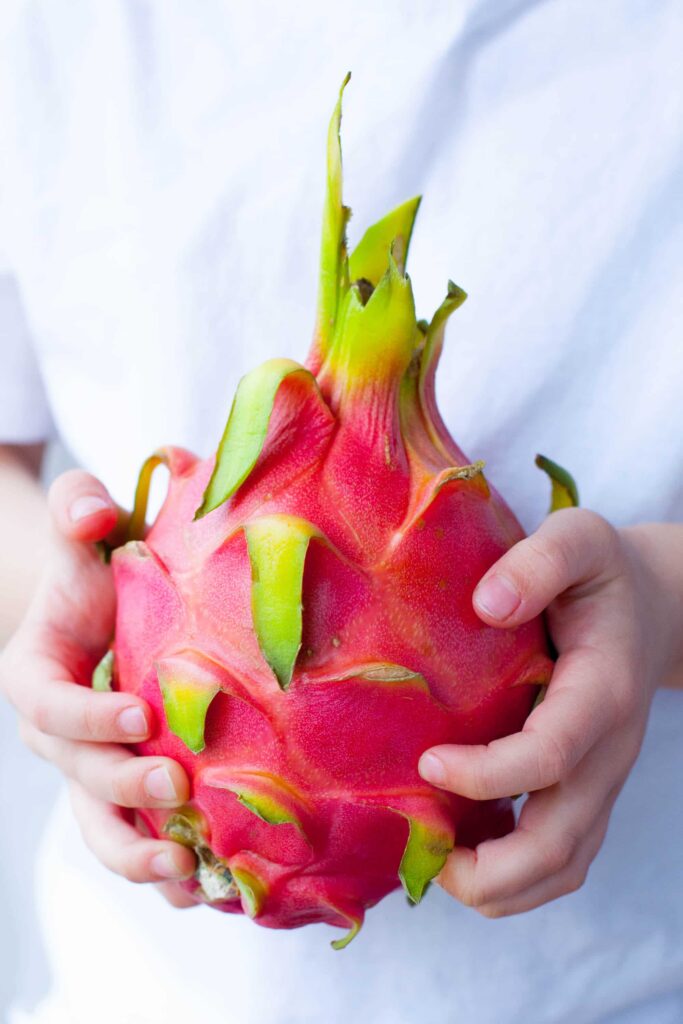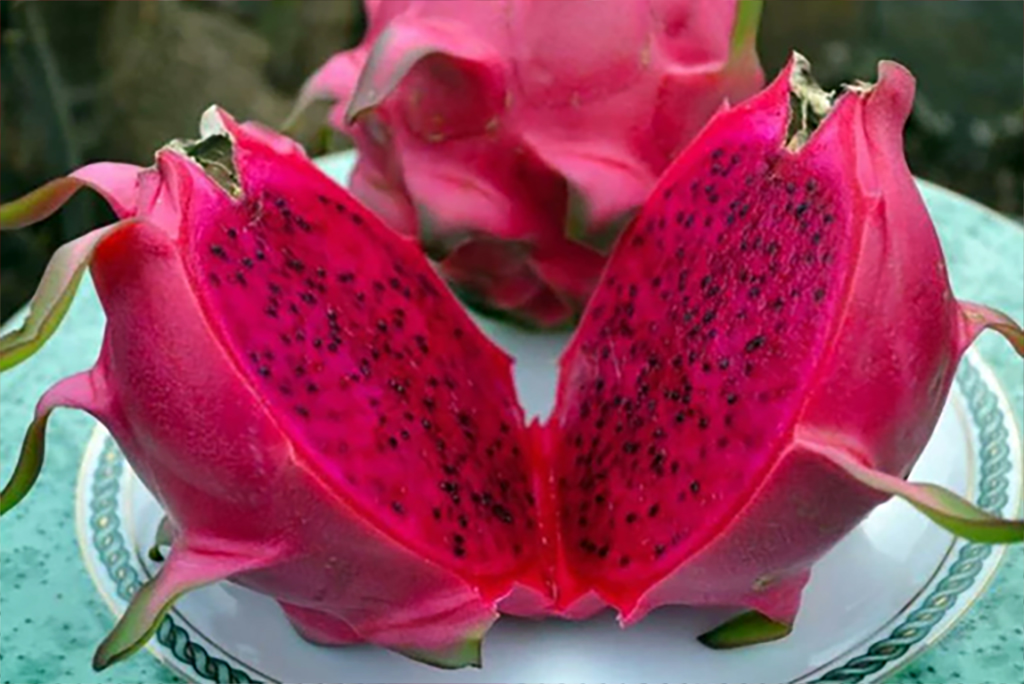Overview
Dragon fruit is a tropical fruit that is full of nutrients. Dragon fruit nutrition includes high vitamin C content, which supports healthy skin and a strong immune system. The fruit’s dietary fiber content promotes fullness and helps with digestion. It’s a healthy snack choice because it’s low in fat and calories. Essential minerals such as potassium, magnesium, phosphorus, and iron have an impact on overall health. Dragon fruit’s high water content aids in staying hydrated. The fruit’s antioxidants may help prevent oxidative stress. It provides soluble and insoluble fiber, which is good for the heart. The vivid colors of dragon fruit indicate the presence of healthy phytonutrients. Dragon fruit offers nutritious richness and diversity to a well-balanced diet.

Dragon Fruit Nutritional Value
The exact type and growing environment can have a modest impact on the nutritional value of dragon fruit. The approximate information of dragon fruit nutrition facts 100g is as follows:
- Calories: 60–70 kcal
- Water: Approximately 90%
- Protein: 1-2 grams
- Carbohydrates: (9–14) grams
- Eatable fiber: three grams
- Sugar: 8–9 grams
- Fat: 0–1 grams
- Vitamin C: 3–9 mg (depending on the type)
- Vitamin B2 (Riboflavin): 0.02-0.04 mg
- Vitamin B3 (Niacin): 0.2–0.7 mg
- Iron: 1-3 mg
- Phosphorus: 27–30 mg
- Magnesium: 21–30 mg
- Calcium: 8–10 mg
- Potassium: 200–370 mg
In addition to having few calories, dragon fruit nutrition is a wonderful source of dietary fiber, vitamin C, and other important minerals. It is renowned for having antioxidant qualities as well. Remember that these are approximations that could change depending on the particular variety of dragon fruit and the growing environment.
Dragon Fruit Nutrition Benefits

- Rich in antioxidants: Vitamin C and other substances like betalains are among the many antioxidants found in dragon fruit. Antioxidants aid the body’s defense against free radicals, which are linked to aging and several illnesses.
- Vitamin C: This fruit has a lot of it, and vitamin C is important for skin health, immune system function, and iron absorption from plant-based diets.
- Dietary Fiber: Soluble and insoluble fiber can be found in dragon fruit. In addition to encouraging regular bowel movements and aiding in blood sugar regulation, fiber is essential for digestive health.
- Low Calorie: Dragon fruit is a calorie-conscious snack that is both refreshing and healthy, thanks to its comparatively low-calorie content.
- Hydration: The fruit helps with hydration because of its high water content. Maintaining adequate hydration is crucial for several body processes, such as controlling body temperature and moving nutrients around.
- Minerals: Iron, phosphorus, magnesium, and calcium are among the vital minerals found in dragon fruit. These minerals are crucial for maintaining healthy bones, energy metabolism, and general health.
- Heart Health: By lowering the risk of heart disease and managing cholesterol levels, the fiber and antioxidants in dragon fruit may help to maintain heart health.
- Encourages Weight management: Those looking to control or reduce their weight may find that the low-calorie and high-fiber content of dragon fruit is advantageous. Fiber promotes satiety, which prolongs the sense of fullness.
Despite the benefits of dragon fruit nutrition, it’s crucial to remember that a varied and balanced diet is still necessary for good general health. Meeting your nutritional needs requires eating a wide variety of fruits, vegetables, and other nutrient-dense meals.
One Dragon Fruit Nutrition

One dragon fruit, which usually weighs between 200 and 250 grams, can have different nutritional values depending on the variety and growth environment. The following is a rough breakdown of the nutrients found in one dragon fruit:
- Protein: 2-4 grams
- Carbohydrates: 18–30 grams
- Dietary fiber: 6 grams
- Sugars: 16–20 grams
- Fat: 1-2 grams
- Vitamin C: 6–15 mg (varies based on the variety)
- Vitamin B2 (Riboflavin): 0.04-0.1 mg
- Vitamin B3 (Niacin): 0.4–1 mg
- Iron: 2–5 mg
- Phosphorus: 54-75 mg
- Magnesium: 42-60 mg
- Calcium: 16-25 mg
- Potassium: 400–620 mg
These figures are approximations that may change depending on the particular variety of dragon fruit and the environment in which it grows. Dragon fruit is renowned for its vivid look, distinct flavor, and nutritional advantages. It is an excellent source of dietary fiber, vitamin C, and antioxidants. Including a range of fruits in your diet can improve your general health and wellness.
Table of Contents
To learn more about dragon fruit specialties, click here.

Pingback: Dragon Fruit For Skin Health - dragonfruitfarming.in
Pingback: Dragon Fruit for Bones - dragonfruitfarming.in
Pingback: Dragon Fruit For Hair - dragonfruitfarming.in